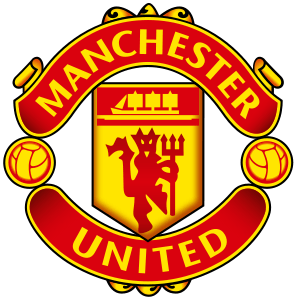Glazer family chooses greediest bankers on Wall Street
 Man United to use ’emerging company’ loophole to retain muddy reporting
Man United to use ’emerging company’ loophole to retain muddy reporting
With their valuation of Manchester United at £3bn ($20 a share), the Glazer Clan owners of the world’s most famous football club are, it seems to me, confusing the investment mood on Wall Street in 2012 (“This is a heavily indebted soccer club with a poor season behind it”) with the City of London at the height of the Dotcom Tulip in 1996 (“All things good must be excellent”).
We students of social psychology call this confusion ‘desperate greed’. So it is perhaps unsurprising that, for their launch advisers, the Glazers of Delaware have chosen the most desperately greedy firm on the Street of Covetous Mammon, Jefferies Group Inc.
But don’t just take my word for it: consult the numbers. The net income for Jefferies has fallen to $63.5 million (28 cents per share) vs. $80.6 million (36 cents per share) a year earlier. This is a decline of 21.2% from the comparative quarter. In fact, the company’s net income has fallen for the last three quarters. Over the last 30 days, analysts have not been optimistic about the company’s next-quarter performance. The average estimate for the third quarter is now 25 cents per share, down from 30 cents. For the fiscal year, the average estimate has moved down from $1.32 a share to $1.16 over the last thirty days.
Yet somehow, Jefferies felt OK about setting aside $870 million in the first six months of its fiscal year, enough to pay its 3,809 employees an average of $228,407. Goldman Sachs set aside $225,789 for each of its 32,300 workers. Average pay for the 26,553 people in JPMorgan’s investment bank was $184,989, or at least 18 percent less than Jefferies’s and Goldman Sachs’s reported figures.
This is of course a familiar banking syndrome: rewarding failure with ever-bigger salaries. But were I a stockholder in Jefferies right now, I would be asking two questions. First, why are salaries going up and my dividends going down? And second, why are you shmucks taking on the IPO Turkey of the Year?
Mike Ozanian at Forbes writes:
‘The amended filing for Manchester United’s public offering is going to give more of the IPO’s proceeds to the Glazer Family and less to the English soccer club than the original offering.”
The Manchester United Suporters’ Trust (MUST) wrote to Forbes pointing out that:
‘The revised filing reveals they now plan to take HALF OF THE IPO PROCEEDS FOR THEMSELVES. Furthermore the amount raised to pay down debt will be relatively insignificant (£75m) leaving £350m of their debt still on our club. There is now no doubt that this IPO is bad for Manchester United supporters, Manchester United Football Club and any investors gullible enough to pay the inflated price they’ve attached to inferior shares which have just 1/10 of the voting rights of the Glazers shares and no dividends. Their bare faced cheek is almost unbelievable.’
It’s hard to argue with that: as the FT points out, ‘The Glazers will retain class B shares, which have 10 times the voting power of the class A shares that are going to market.’
But here’s another little nugget – and classic Delaware sheister reporting bollocks: United filed as an “emerging growth company” to take advantage of provisions under the recently passed US Jobs Act, which allows companies with annual revenues of less than $1bn to delay some financial reporting requirements for up to five years. They can do so because, for the year ending June 30, United said it expected to report losses from continuing operations of £6m to £8m.
So: an MUFC going backwards in revenue terms seeks a premium valuation, using a lead launch bank…whose people get paid premium salaries, but whose results are going backwards in revenue terms.
Yes indeed, birds of a feather flock together…and sh*t on those below.




